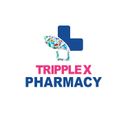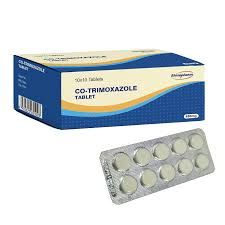"Septrin, also known as cotrimoxazole, is an antibiotic medication that combines two active ingredients: sulfamethoxazole and trimethoprim. It is commonly used to treat a variety of bacterial infections and is particularly effective in managing conditions associated with respiratory and urinary tract infections.
Key Features
- Composition: Each tablet contains 480 mg of cotrimoxazole, which includes:
- 400 mg of sulfamethoxazole
- 80 mg of trimethoprim
- Formulation: Available in a pack of 10 tablets, often used for short-term treatment courses.
Indications
Septrin is indicated for the treatment of:
- Urinary Tract Infections (UTIs): Effective against various bacteria causing UTIs.
- Respiratory Infections: Used for conditions such as bronchitis and pneumonia, particularly in immunocompromised individuals.
- Gastrointestinal Infections: Effective for treating traveler's diarrhea and shigellosis.
- Pneumocystis Jirovecii Pneumonia (PCP): Commonly used as prophylaxis or treatment in patients with HIV/AIDS.
Dosage Instructions
- Adults: The typical dosage for treating infections is usually one tablet (480 mg) taken twice daily. The exact duration depends on the type and severity of the infection.
- Children: Dosage for children is based on weight and should be determined by a healthcare provider.
Side Effects
Common side effects may include:
- Nausea and vomiting
- Diarrhea
- Skin rashes or allergic reactions
- Loss of appetite
Serious side effects can include:
- Severe skin reactions (e.g., Stevens-Johnson syndrome)
- Blood disorders (e.g., leukopenia, thrombocytopenia)
- Liver toxicity
Patients should seek immediate medical attention if they experience severe reactions such as difficulty breathing, swelling, or any signs of severe skin rash.
Precautions
- Contraindications: Not recommended for individuals with known hypersensitivity to sulfonamides or trimethoprim.
- Use with caution in patients with kidney or liver impairment, or those with a history of blood disorders.
- Patients should be monitored for signs of adverse reactions, especially during prolonged therapy."

